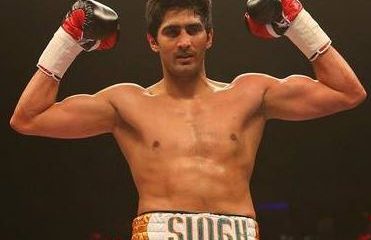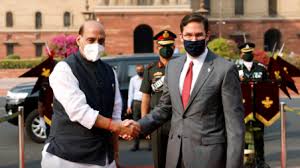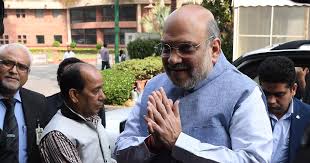National
Beef and meat bans cast shadow over Eid-ul-Azha

By Aijaz Nazir
New-Delhi: With hundreds of families across the country preparing Eid-ul-Azha in the last week of September, the ban on sale of meat, including beef, has come as a huge setback for the traders who were expecting a good business during the festive season.
Akbar Qureshi, a meat trader in the Mankhurd area of Mumbai, is a worried man since the ban on beef came into force in Maharashtra in March this year under the Maharashtra Animal Preservation (Amendment) Act, 1995. Since then, he has been able to sell very little buffalo meat and is in danger of running out of customers.
“People don’t eat buffalo meat that much. I would earlier sell some 100 kilograms of beef daily, but now I hardly sell 40 kilograms of buffalo meat,” he said.
Akbar is just one among hundreds of traders, dealers and suppliers whose business has been severely affected by the beef ban in the state.
While Maharashtra and Haryana had banned beef earlier, many other states including Gujarat and Chhattisgarh and cities like Mumbai and its suburbs have recently introduced temporary bans on sale and possession of meat for varying number of days in respect of ‘Paryushan,’ a Jain fasting season.
The ban on beef comes even as India has emerged as the world’s top exporter of beef since last year. As per data released by the U.S. Department of Agriculture in April this year, India has doubled its beef export from 1.26 million tonnes in 2011-12 to 2.40 million tonnes in 2014-15.
Beef ban means no exports either. Anwar Khan owns Al-Saba exports, a meat exporting company in Mumbai. He is facing huge losses.
“My monthly turnover was around Rs. 2.5 crore. But now I have lost everything and had to fire over 100 employees,” said Khan. “We are running short of buffaloes here, due to which it is impossible to do business,” he added.
Jammu and Kashmir became the latest addition to this list when the state High Court directed the authorities on September 10 to strictly enforce a 150-year-old erstwhile Dogra-rule-era provision of ban on sale and distribution of beef in the state.
Shabir Ahmad, along with his family, has domesticated a bullock to sacrifice this Eid. He is worried about being able to do that due to the ban.
“I would graze the bullock for hours after my day work and would give fodder to keep him in good health,” Shabir said.
Beef is particularly useful since it is cheap and hence bull or bullocks are preferred by many rural families over sheep or goat for the animal sacrifice during the Eid-ul-Azha. Moreover, in religious convention, while a goat or sheep qualifies a single person for the sacrificial obligations, a bovine animal qualifies seven people.
“I can’t afford a separate sheep or goat individually for every family member,” Ahmad added.
Given the religious implications of the ban, the decision has invited harsh criticism from not only the ordinary Kashmiris but also religious bodies. Jamaat-e-Islami, one of the largest such bodies in the Valley, has termed the decision as totally ‘unacceptable’.
G.M. Bhat, Ameer of the Jamaat, said, “It is absolutely not possible to convince the Muslim community to go against their own religion; so we oppose it.”
To protest against the ban, the Valley also observed a two-day strike on the call given by the Hurriyat led by Syed Ali Shah Geelani. He termed the court’s decision as interference in religious affairs.
Geelani said, “If India boasts of being a secular country, then everyone has a right to practice one’s religion. However, this controversial decision has taken away the freedom of the Muslims only.”
Meanwhile, meat suppliers in the region are now worried about losing their business as the festival season approaches.
Manzoor Ahmad, Anantnag-based supplier, had sold thousands of animals on Eid last year. This year he is looking at a gloomy business scenario.
“Last year, I supplied many animals before the Eid-ul-Azha. If this ban remains, dealers and suppliers will have to face huge business losses,” said Ahmad.
Cow is a revered animal for many in the Hindu community, and therefore its slaughter is considered unacceptable by them. Prohibition of cow slaughter is mentioned as one of the Directive Principles of State Policy under Article 48 of the Indian Constitution. The issue, though, has remained largely dormant till recently.
However, recent moves by the BJP-ruled states like Maharashtra and Haryana to cover all bovine animals in the anti-slaughter law and steps by several others to impose temporary meat bans are seen as powerful indicators of the growing influence of the right-wing Hindu organisations since the Narendra Modi government assumed power last year.
National
Foodman Vishal Singh Honored for Hunger Free World Mission in Bangkok

Lucknow: Vishal Singh, a renowned social worker from Lucknow, also known as Foodman, has once again made India proud. He was honored by the Happy Hands Gloves Cooperative Limited Company in Korathai, Thailand, for his work with the Hunger Free World Mission.
The Hunger Free World Mission’s meeting was held in Korathai, Thailand, under Vishal Singh’s leadership. Representatives from several countries, including Mr. Raja Dwivedi (Managing Director of Happy Hands Gloves Limited), Thailand Coordinator Mr. Raja Mishra, and member Mr. Varun Singh, attended the event.

Under Vishal Singh’s leadership, the attendees took a pledge to work together toward creating a hunger-free world.
Speaking on the occasion, Vishal Singh explained that the main goal of the Hunger Free World Mission is social participation. He said the mission is not just about feeding people but also about meeting other basic needs of those who are struggling. The mission focuses on helping families of terminally ill patients in hospitals by providing food and shelter. It also works to fulfill essential needs like education, jobs, and care for the elderly.
For the last 16 years, the Vijay Sri Foundation has been providing free services, benefiting thousands of people. Vishal Singh highlighted that the mission aims to gain global recognition like other organizations such as WHO, WWF, and Red Cross, which work for social causes.
During this meeting, Vishal Singh was appointed as the Chairman of the Hunger Free World Mission by representatives from various countries. They also discussed holding regular meetings in different countries to push the mission forward.
Business tycoon Dr. Abhishek Verma has also supported this humanitarian mission, vowing to promote the idea of “Seva Parmo Dharma” (Service is the highest duty) worldwide. Vishal Singh praised him, stating that people like Dr .Abhishek Verma inspire others to work for the betterment of society.
Recently, Romania’s Ambassador, Mr . Daniela Sezonov Ţane, invited Vishal Singh to the Romanian Embassy in Delhi, where they discussed the mission in detail. Impressed by his humanitarian work, she honored Vishal Singh and invited him to Romania to take the mission forward .
Food man Vishal Singh has been serving the people of India for the past 16 years. Through the Vijay Sri Foundation, he provides free meals to cancer patients & their families ,shelter, and education for women & children along with running free old-age homes in Lucknow.
In addition to his humanitarian work, Vishal Singh also addresses issues like crime and corruption through his role as Chairman of Seva Path Media and Managing Director of Vijay Sri Foundation.

During the COVID-19 pandemic, Vishal Singh and his team worked tirelessly to provide food and help to the needy, including starving children, elderly citizens, and pregnant women. Despite contracting the virus himself, he continued to assist others after his recovery. He even created a life-saving oxygen regulator using household items, which was praised by doctors both in India and abroad.
In his address at the meeting, Vishal Singh spoke about his mission to create a hunger-free world. He pointed out that India’s large population, along with issues like unemployment and poverty, has caused the country to fall on the Hunger Index. He urged people to contribute just one handful of grains daily to help create a hunger-free world.
He concluded by saying that through social participation, we can empower the people around us, meet their basic needs, and work together to build a stronger, more prosperous, and developed society.























